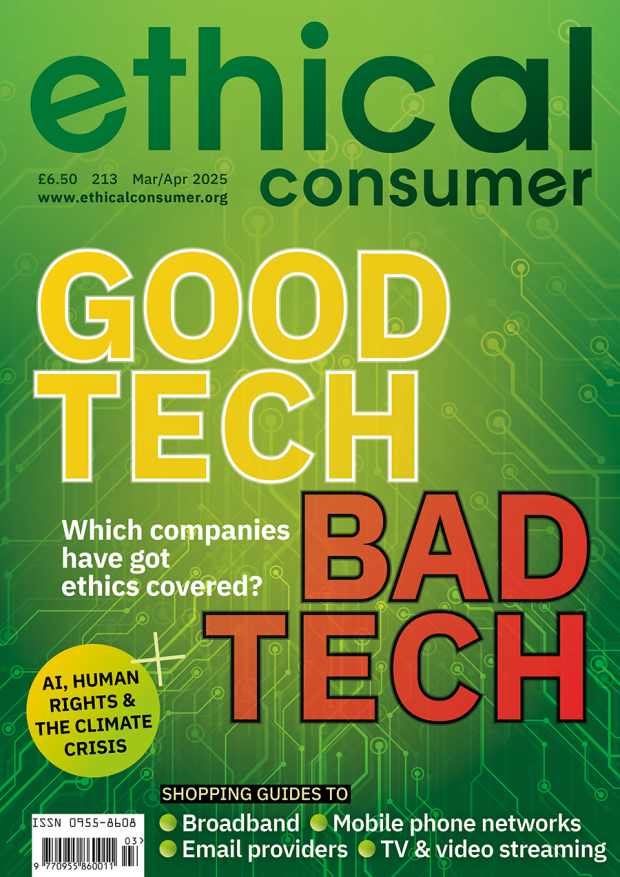Finding an ethical mobile phone network
This guide assesses 20 of the UK’s leading mobile phone networks. The key thing to know about the UK’s mobile network is that the underlying physical infrastructure is actually operated by just four (soon to be three) companies: EE, O2, and the soon-to-be-merged Three and Vodafone.
All other operators are called ‘Mobile Virtual Network Operators’ (MVNOs) as they provide services by 'piggybacking' on the others’ infrastructure. MVNOs purchase minutes or data from the 'big four' network operators at wholesale prices and can offer lower prices to their own customers due to lower overhead costs. Virtual operators don’t directly bear the infrastructure and operational costs of running a wireless network, such as constructing cell towers.
Some of these virtual operators are fully independent companies, whilst others are owned by the company that they piggyback on.
So although the choice of infrastructure provider is narrow, the guide highlights large differences in ethics between many of the mobile network providers, with some scoring over 70/100, whilst other brands languish at the bottom of the scoretable, barely scraping 10 or 15 points. This means there is scope to find an ethical or green mobile phone network provider.
UK mobile phone network
Much has changed in the two years since we last reviewed mobile networks. Plusnet Mobile closed for good in early 2024, and BT Mobile ceased accepting new consumer customers in October 2023, focusing on EE as the primary consumer brand.
A new player, Meaningful Planet, emerged as a virtual operator which directs 10% of revenue to nature-based projects in the UK.
And the Consumer and Markets Authority approved the long-awaited merger between Three and Vodafone in December 2024, paving the way for the creation of the UK’s largest mobile network.
Who owns what brands?
As well as the forthcoming merger, there are several mobile service providers which are owned by larger conglomerates.
- Telecom Plus: 1pMobile, Utility Warehouse
- Vodafone/Three: Smarty, Talkmobile, Three, Vodafone, VOXI
- VMED O2: giffgaff, O2, Tesco Mobile, Virgin Mobile
VMED O2 is Virgin Media and O2, and is 50% owned by Telefonica and 50% by Liberty Global.




